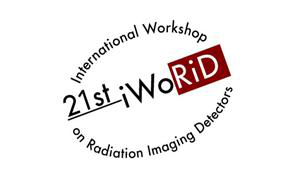Speaker
Description
Direct- and indirect-conversion detectors, which use a photoconductor and a scintillator, respectively, for detection of x-ray photons, compete to each other in diverse x-ray imaging fields. The spatial-resolution performance of the direct-conversion detector is generally known to be superior to that of the indirect-conversion detector. Structurization of the scintillator into pixel geometry, which is also matched to the underlying readout pixel array, may revolutionize the concept of indirect-conversion detectors because it may result in the pixel deign-limited spatial resolution as well as the high detection efficiency using high-Z material [1]. This pixel-structured scintillator can be realized by packing scintillation material into a pixel-structured well-like grid array. However, it is very important to notify that the grid array to the x-ray incidence plays a role as the sampling process in signal formation, and it can significantly reduce the signal level over the whole spatial frequency [1].
To avoid or reduce the x-ray sampling loss in signal, we suggest a partially pixelated scintillator design. In other words, we suggest an additional continuous scintillation layer over the pixel-structured scintillator. Although the spatial resolution of this design would be inferior to that of the complete pixel-structured design, the x-ray sensitivity will be higher. We investigate imaging performance of pixel-structured scintillators using Monte Carlo x-ray and optical photon simulations, as shown in Fig. 1. The performance includes x-ray sensitivity, spatial spreading of signal, and aliasing artifact. We determine the optimal design of pixel-structured scintillators for specific x-ray imaging applications or suggest a guideline for design optimization.




